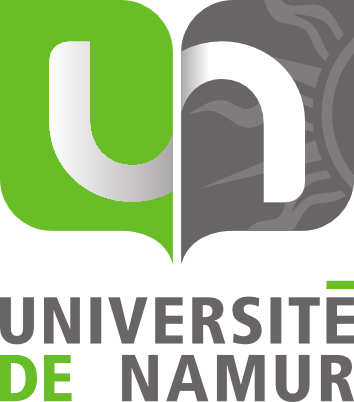naXys - NISM seminar | "The new generations of active-layer materials for organic electronics: Recent advances" by Prof. Jean-Luc Brédas
The NISM and naXys research institutes have the pleasure to welcome Prof. Jean-Luc Brédas from the University of Arizona, USA, for a talk entitled "The new generations of active-layer materials for organic electronics: Recent advances"
Date : 09/06/2023 11:00 - 09/06/2023 13:00
Lieu : Aula Maior, Faculté de Philosophie et Lettres
Orateur(s) : Jean-Luc Brédas
Organisateur(s) : NISM - naXys
His talk will focus on photovoltaics and light-emitting diodes and in particular to the link between materials properties and devices efficiencies. This is a fantastic opportunity for our researchers to see a prestigious speaker internationally renowned.
Jean-Luc Brédas - Short CV
Jean-Luc Brédas is an American chemist, working at the University of
Arizona, USA. He was born in Fraire, Belgium, on 23 May 1954.
He received his Ph.D. from the University of Namur, Belgium, in 1979 in
the lab of Professor Jean-Marie André.
He held various positions
during his career, at the University of Mons, University of Arizona, the
Georgia Institute of Technology and the King Abdullah University of
Science and Technology.
He was also awarded several prizes such as the Francqui prize and the Descartes prize of the European Union.
The
research field of Prof. Brédas is centred around the development of
functional pi-conjugated materials for energy applications and
light-emitting displays.
Overall, he has published around 1200 papers
in peer-reviewed journals and reaches an h-index of 147. He is a very
good speaker able to adapt his talk to the audience.
The new generations of active-layer materials for organic electronics: Recent advances
Abstract : We will first describe recent advances that have been made in two key areas of organic electronics: Organic light-emitting diodes (OLEDs) and organic photovoltaics (OPV). While OLEDs based on phosphorescent emitters (incorporating heavy-metal ions) have become nearly ubiquitous and represent a global market predicted to surpass to US$50B in 2023, the emergence of efficient non-fullerene acceptors some eight years ago has allowed the power conversion efficiency of OPV devices to increase remarkably, from some 11.5% to nearly 20%. We will then discuss our recent theoretical work dealing with two strategies to design efficient, purely organic emitters and get rid of any heavy metals: The first was introduced in 2012 by Chihaya Adachi and co-workers at Kyushu University, who proposed to harvest the triplet excitons in purely organic molecular materials via thermally activated delayed fluorescence (TADF). These materials now represent the third generation of OLED emitters. Impressive photo-physical properties and device performances have been reported, with internal quantum efficiencies approaching 100%. The second and more recently applied strategy was proposed by Feng Li and co-workers at Jilin University in 2015 and is based on the exploitation of stable organic radicals. In these materials, when the lowest excited state and the ground state both belong to the doublet manifold, high efficiencies and photo-stability can also be obtained. Finally, turning to OPV, we will highlight how the combination of our computational work together with experimental data coming in particular from temperature-dependent electroluminescence measurements:
(i) allows a reliable description of the nature and energetic distribution of the charge-transfer electronic states that mediate exciton dissociation, charge separation, and charge recombination;
(ii) offers a unified view of the non-radiative voltage losses in both fullerene-based and nonfullerene-based devices;
(iii) provides guidance for the design of next-generation, high-efficiency OSC blends.
Welcome to all!
Contact :
Yoann Olivier
-
yoann.olivier@unamur.be
Télecharger :
vCal
